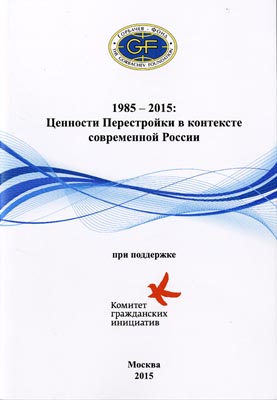10 August 2015
1985–2015. The Values of Perestroika in the Context of Today's Russia

The paper was presented at a Round Table Discussion: "1985–2015. The Values of Perestroika in the Context of Today's Russia on 28 May, 2015 by a group of experts invited by the International Foundation for Socio-Economic and Political Studies (The Gorbachev Foundation) and the Civic Initiatives Committee (CIC): Tatiana Vorozheikina, Vasily Zharkov, Andrey Zakharov, Andrey Kolesnikov, Alexei Levinson, Nikolay Petrov, Andrey Ryabov.
Perestroika (1985–1991), the process of political reforms initiated in the second half of the 1980s in the Soviet Union under the leadership of Mikhail Gorbachev, became a watershed event in the late 20th century, which changed the world and our country.
Perestroika was not transplanted from the "outside"; it ripened within Soviet society. The need for change was recognized by a significant part of the political elite, the intelligentsia and the more active citizens, tired of the stagnation and gerontocracy in the country’s political leadership. By 1985, different strata of Soviet society had not only come to an understanding that the country’s course of development had no prospects but had also become convinced that it had to be changed.
Read the Report





